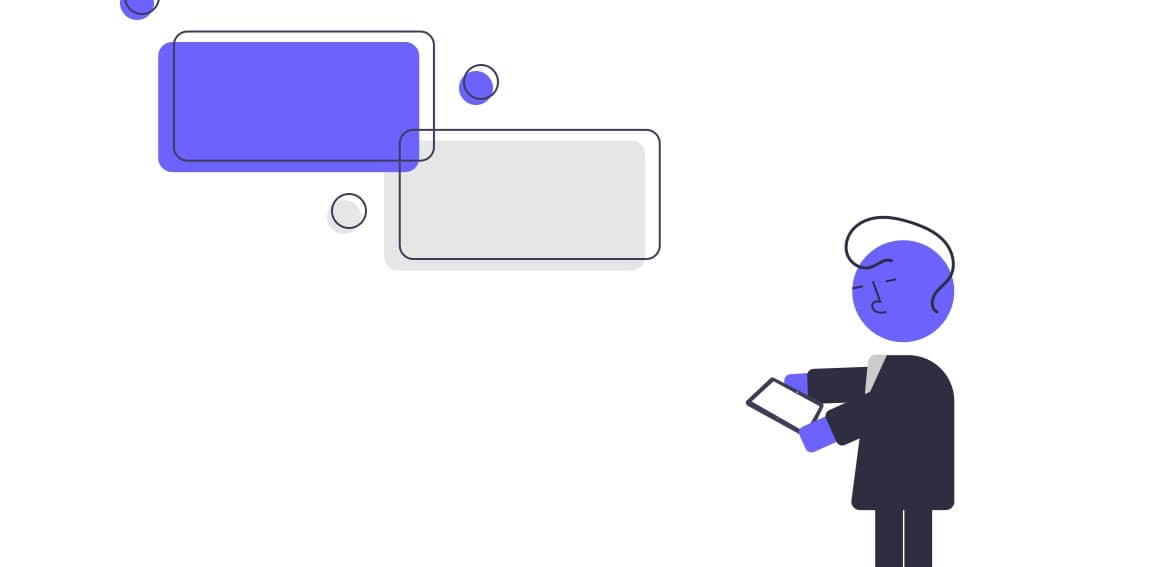Must Have Skills for Agile Project Manager
Developing a new product and releasing it into the market is not an easy task. For this, you need to put in a lot of effort and planning. Many tasks need to be monitored from the planning phase to the closing phase. It can only be possible if you have a flexible environment to work in and a team that can respond effectively to changes and deliver the work on time. But all this can't happen without a project manager, because they are the person who can keep the team on track by organizing the tasks in a better way with the technical and non-technical know-how.

While discussing it may seem easy but in real scenarios managing a project isn't easy especially in the fast-paced business environment. There are a lot of changes required at each step, and you have to respond to these changes efficiently and effectively. To prevent any difficulty in dealing with the iterative changes at each step, follow the Agile Project Management. If you don't have an idea about Agile methodologies and Agile Project Management, don't worry! In this article, we will discuss them in detail and also qualities that an Agile Project Manager should have.
What is Agile and Agile Project Management?
Agile methodology is based on short cycles for development and focuses on continuous updates and improvement in developing a project. Agile project management is an incremental and iterative approach to manage projects and focus on breaking a large and complex work into smaller and more manageable tasks that should be completed in short bursts. Using Agile methodology, one can complete work in a better and faster way, able to change the client's requirements and optimize the work.
The purpose of Agile Management is to lead projects iteratively where the focus is on working the task by breaking it into small batches, collaborating with the client on every step, and getting feedback instantly. By following this approach, one can easily adapt to changing requirements by understanding the client's needs and produce high-quality products by continuous improvement.
Managing a project using Agile methodologies means effective communication to convey information between the client and the development team. For every organization, customer satisfaction is always a high priority that can be achieved by mutual collaboration and fast delivery. Here mutual collaboration means that the stakeholders and development team should collaborate regularly.
Agile is preferable for software development and provides a lot of benefits including, more flexibility, increased productivity, high-quality, more engagement, less risk to miss requirements, and high transparency.
Apart from these benefits, Agile has some essential features that are the basis of the Agile process, which are as follows.
- Transparency
- Adaptability
- Continuous improvement
- Efficient management
- Customer and team collaboration

Transparency
Transparency is one of the bases in Agile methodology because understanding among all the stakeholders and development team is necessary. So, people share their work progress with others, due to which everybody who is linked with a project knows their peer's work.
Adaptability
In the Agile environment, the main aim is to ensure that the team can respond to changes demanded. Instead of delivering the whole project at once, it focuses on delivering the work iteratively into smaller portions. For this reason, the customer can see opportunities for improvement or change and can initiate the process early on.
Continuous Improvement
One of the most important properties of Agile is to make continuous improvement by learning alongside. When frequent changes are required then the team has to reflect more effectively.
Effective Management
In project management, all the hold is allocated to the project manager that decides everything. In contrast, the right of decision-making is also in the hands of the team members because they are the ones who are closer to technical work. Team members have the right to collaborate in providing solutions and can take part in the planning phase.
Customer and Team Collaboration
No matter how much technology has evolved, the communication factor is still playing an important role in managing a project. Just relying on software tools isn't the right thing. Collaboration with the client and gathering requirements from them helps you to make the end product with customer's satisfaction.

So far, we have discussed what Agile and Agile Project Management is, now let's have a look at some Agile methods.
Agile Methodologies
Since Agile is becoming the most used framework, so there are many other methods introduced due to the hype. These methodologies include Scrum, Kanban, Lean, Scrumban, XP, and many more. In this article, we are going to discuss a few of them and how they are related or differ from the agile framework.
Scrum
Scrum is an iterative approach that splits the project into small parts for a fixed interval called sprints. There is a product backlog that contains all the wish lists from the product owner. From the product backlog, the scrum team picks some of the wish list items and keeps them in the sprint backlog that should complete in a short period of 2-4 weeks. There is a scrum master who communicates with the stakeholders and team to keep in touch with the requirements and progress by doing a daily stand-up meeting. The purpose of the scrum master is to keep the team focused and complete the sprint on time.

Kanban
This method was invented by the Japanese and is a visual representation of the tasks on a whiteboard. The team can see their tasks on a Kanban board that helps in fast collaboration and information exchange between them. Visual representation of the workflow in Kanban helps to manage work easily and everyone linked with the project can keep track of all the tasks. The Kanban board contains multiple columns that show the requirements, In progress processes, and the completed ones. This board provides complete information and bottlenecks in the system.
Lean
Usually, people get confused and mix up Lean with Agile. However, both of them are related and very similar to each other, but there is a difference. Lean is a business methodology with more information and ensures effective decision making. At the start, lean was only used in manufacturing but its expansion in the software industry optimized software development. But later, its success in the software industry enhances because it eliminates the extra stuff and provides only the things that give value to customers.
Lean vs Agile
Differences and similarities between these two are always not clear. But for an Agile Project Manager, it is very necessary to understand the differences between Lean and Agile methodologies.
The first and foremost thing that needs to know is that the lean methodology is linked with production while agile methodology concerns the optimization in development.
Lean was introduced for the manufacturing and industry sector while agile was created for software development.
In lean, there are no extra processes and work on the things that provide value to the end-user. While in Agile, prototypes are made before the actual product that is also tested and evaluated.
Apart from these differences, it is still difficult to identify which methodology is better because each of them has its own pros and cons. So, in order to select one of them for project management one should understand the characteristics of both and then evaluate them according to your requirements.
Must-Have Skills for an Agile Project Manager
Whether a project becomes a success or a failure, all the credit goes to the project manager. With just basic knowledge, one can't manage a task effectively. For managing a project efficiently and keeping the team on track, one should master both technical and non-technical skills.
Since most of the organizations especially the software industry are now adopting an Agile environment for better collaboration and effective delivery of projects. An Agile Project Manager can only fulfill the responsibilities properly on time if they possess some qualities that we are going to discuss in this article.
Communication
Since the base of Agile development is Scrum, which includes specific roles and an incremental approach to delivering the project in a short time, that is called a sprint. The team works on a sprint for a short period and turns the requirements into functionalities. Each sprint requires proper communication by the manager as well as from the team. So, a daily stand-up meeting is held by the manager or scrum master. Communication is the core skill in project management to resolve or prevent issues. The agile framework is responsible to update the work regularly because requirements can change at any time during the sprint.

"Tip: During the teamwork, make sure that everyone is using the same software for communication so teams can manage the fast-changing environment."
Adaptability
In a fast-changing environment like agile where the technology is evolving so abruptly, adaptability is the skill that a manager must-have. Planning a project is vital, but the ability of how you adapt to the changing environment is challenging. Project Managers should have the guts to adapt and manage changes with time as the requirements can change with each sprint submitted. Managers should make sure to synchronize the team with the end-users so they can adapt quickly to the new requirements.
Organization
A project manager is the one who can do multiple tasks at one time and organize them perfectly. Make sure that the processes in the sprint are working properly and organized smoothly. Prioritizing the tasks and scheduling them accordingly, will help in managing the common goals. Agile management should have all the skills that help them to achieve the desired outcome even in a challenging environment.
Problem Solving
Problem-solving in project management is an essential skill. Dealing with the problems without getting confused is a quality that every agile manager should have. Every project comes with a lot of problems due to improper planning or execution. The responsibility of a manager is to take action against these problems and give an appropriate solution on time. For solving a problem, one must need to figure out the cause behind it and then come up with an idea to tackle it efficiently.

Risk Management
Risk management is one of the knowledge areas in which a project manager should have proficiency. It is a process in which first you need to identify and analyze the risk and then respond to the factors causing risk throughout the lifecycle of a project. Normally, while a project is in the execution phase, there are a lot of things that can go wrong but, if the risk management is done at the initial phase like planning, the loss can reduce. To become a successful project manager, one should learn and educate risk management.
Time Management
Since in an Agile environment, time management is the most important factor that a project manager should expert in. As each sprint has a limited time so, manage the tasks according to priorities. Ask questions from stakeholders and team members so you can manage and divide the project in a way to complete it before the deadline. Numerous tasks need to be completed in a short period. So, they should master in prioritizing and time management to become successful.
Conclusion
In the article, the basic skill set has been discussed that an Agile Project Manager should have. It's the responsibility of a manager to keep the team and stakeholders aware of the progress. He should be able to negotiate when things get messed and able to overcome difficult situations with good problem-solving skills. Strong communication and negotiation skills are required for the daily stand-up meetings and collaboration between the stakeholders and the team. These are the factors that determine the success and failure of a project so, before hiring a project manager make sure one should have these qualities.
Using Agile methodologies and software, you can adapt to a more flexible environment. Agile is not suitable for everyone, but the managers and teams who can handle the fast-paced environment can get a lot of benefits with rapid innovation.








